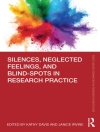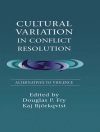This book will be vital reading for anyone doing research, since using the web to find high quality information is a key research skill. It introduces beginners and experts alike to the most effective techniques for searching the web, assessing and organising information and using it in a range of scenarios from undergraduate essays and projects to Ph D research.
Nigel Ford shows how using the web poses opportunities and challenges that impact on student research at every level, and he explains the skills needed to navigate the web and use it effectively to produce high quality work.
Ford connects online skills to the research process. He helps readers to understand research questions and how to answer them by constructing arguments and presenting evidence in ways that will enhance their impact and credibility.
The book includes clear and helpful coverage of beginner and advanced search tools and techniques, as well as the processes of:
@!critically evaluating online information
@!creating and presenting evidence-based arguments
@!organizing, storing and sharing information
@!referencing, copyright and plagiarism.
As well as providing all the basic techniques students need to find high quality information on the web, this book will help readers use this information effectively in their own research.
Nigel Ford is Professor in the University of Sheffield′s Information School.
قائمة المحتويات
Introduction
Why Read This Book?
The Book′s Underlying Rationale
Search Tools Covered in this Book
Learning and Critical Thinking: The Essentials
Learning and Assessment Basics
Essential Learning Components
Summary
Clarifying What Is Required of You
Clarifying the Nature of your Assignment
Planning your Assignment
Summary
Finding High-Quality Information
Defining ′Authoritative′ Information
Information Seeking
Summary
How to Do a Literature Review
Initial Explorations
Strategies for Finding High-Quality Academic Sources
Summary
Information Sources and Search Tools
Types of information source
Types of search tool
Summary
Mapping Search Approaches and Techniques to Information Needs
Directory-Based Browsing and Searching
Topic Similarity Searching
Document Similarity Searching
Filtering
Citation Searching
Boolean and Other Advanced Search Engine Operators
Summary
Scholarly Search Tools in Detail
When to Use Which Search Tools
Google Scholar
Sci Verse Scopus
Web of Knowledge Incorporating Web of Science
Summary
Transforming Information into Evidence-Based Arguments
Making Information ′Your Own′
Critically Evaluating Information
Validity, Reliability, Objectivity and Generalisability as Critical Tools
Developing Your Own Evidence-Based Arguments
Summary
Presenting Your Evidence Effectively
Plagiarism
Citing Your Sources
Summary
Keeping up to Date
A New Document is Published on your Topic
Documents in Which You Are Interested Are Cited in a Newly Published Document
An Author is Cited by a New Document or Publishes a New Document
A New Issue of a Journal in which you are Interested is Published
A website in Which You Are Interested is Updated
Summary
Organizing and Sharing Your Information
Mendeley Basics
Importing Data from Google Scholar and Other Search Tools
Adding PDF Files to Your Library
Inserting References into Your Work
Summary
عن المؤلف
Nigel Ford is Professor in the University of Sheffield′s Information School.












